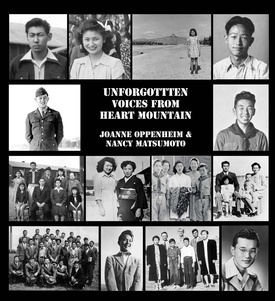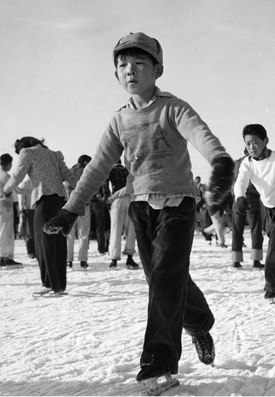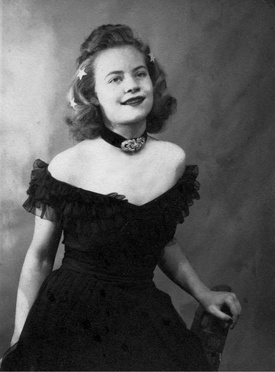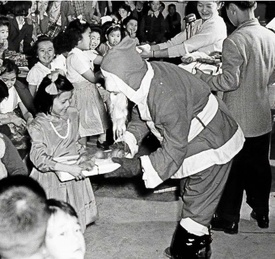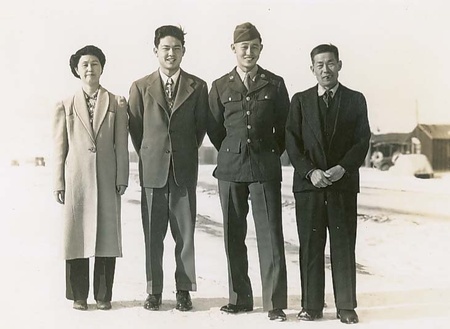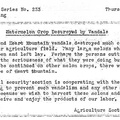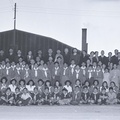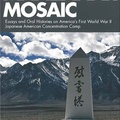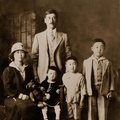The following are holiday-themed excerpts from our book, Unforgotten Voices: An Oral History of the Incarceration, a collection of first-person accounts culled from original interviews, diaries, letters, and archival research. Together, they tell the story of the U.S. government concentration camp at Heart Mountain, Wyoming between the years of 1941 and 1945. They reflect the surreal quality of celebrating Christmas behind barbed wire: receiving gifts from anonymous church donors, the longing to return to the west coast, and the sense of unease as family members shipped off to Europe to fight for the American armed forces.
NORM—ELEMENTARY SCHOOL STUDENT
That winter a new song was playing on the radio…White Christ mas. I guess for the soldiers in the Pacific it was a song of long-ing, dreaming of a white Christmas and home. We didn’t have to dream. It was right outside our doorsteps. But we didn’t let that frozen wasteland go to waste. That winter the scouts helped with digging out the baseball field between the upper and lower block. Volunteers flooded the fields and they became ice skating rinks.
I remember I wrote to my sister in Chicago and told her they had made a pond. So the next thing I know, she sent me a pair of ice skates! I loved ice skating! That was just a real thrill! Now I used to always get kidded because of my ice skates. There are two types—the racing skates had a long nose to them and mine were figure skates and they had those little saw teeth on the front end. So kids always used to tease me about them. “Normy’s got figure skates!” But I was very proud of those figure skates and I loved ice skating.
—Norman Mineta, Sec. of Transportation interview with Joanne F. Oppenheim on October 14, 2004
BABE—CODY HIGH SCHOOL STUDENT
Our theme for the Pep Squad dance was White Christmas. Of course, that was a popular new song from the movie Holiday Inn. We went up to cut fresh trees so we could flock them all white for the dance. One of my friend’s father had a big truck and a Japanese man working for him. So, he sent his driver with us to help us; to drive the truck and help us load the trees. I think his name was Tojo. He was from Heart Mountain.
Anyway, on the way home, there was a place called the Green Lantern and they always had homemade ice cream and we never went by there without stopping and getting some ice cream cones. And the door—the screen door was pushed open so we couldn’t see the sign that said, ‘NO JAPANESE ALLOWED.’ So we went in there and the man who owned the place started after this Japanese guy with a knife— because he had lost a son in the South Pacific. He was very emotional ... and all of us tried to stop him and we ran out—very definitely without our ice cream cones!
—Babe Martoglio interview with Joanne F. Oppenheim on July 25, 2006.
STANLEY—HIGH SCHOOL STUDENT
Doggone it! Yesterday was my birthday and I didn’t even know it. Today I was saying that it’ll be two years more before I sign up for the draft, when Sach [his sister] says ‘what do you mean you’re seventeen now.’ So I’m seventeen now. I don’t feel like it. I mean I don’t feel grown up like some people who are seventeen. Some are already out in the Pacific or someplace fighting.
Yesterday night I got a X’mas present from someone I don’t even know… from a lady named Mrs. C.W. Evans who lives way over in Minominee, Michigan. I got the present via the Sunday School. Lot of other kids got presents, too. Walter, George and Tomo. Their presents came from all over the country. Walt’s came from New York. Tomo’s came from New Mexico. And George’s came from Minnesota.
Besides the presents everybody in the camp under nineteen gets a present whether they go to Sunday school or not. All the presents…were sent by the Presbyterian Union Church. I really think it was a fine gesture. I’m going to write to the lady as soon as I can.
...At about 7:00 o’clock I went to our mess hall Xmas party. It was lots of fun! We played some games, one of which I had to eat crackers and then whistle. I couldn’t even eat one of the five crackers…After the games and entertainment Santa Claus came, much to the delight and happiness of the kids. George’s little sister Sachie was so scared when she saw Santa that she cried.
Masoa and Tadao, and some other little kids went up to shake hands with Santa and get some candy and nuts from him. They looked as if they were in a trance. They came back holding up their package and looking intently at it. Then they showed them to everybody. Then they dragged out big boxes filled with presents for everybody. I didn’t expect much of this Xmas and instead I [had] about the most fun that I ever had.
—Stanley Hayami Diary, December 24 & 25, 1942,
Dear Sach,
Here it is just about X-mas again—sure is going to be a sad one. Every one of us spread all over.
I’m still in the middle of my bivouac—it’s pretty rugged. Guess this is nothing to what Frank will go through shortly. Hope nothing happens to him.
Thanks for your interesting letter—it boosted my morale quite a bit—I was feeling plenty low that day....
I won’t be able to get you anything this X-mas as I have to have enough money to go on my furlough. I hope I can get to New York on a pass from Meade—because I don’t think I have time to go to Heart Mt. and New York at the same time.
Merry X-mas & Happy New Year.
Stan
P.S. Best thing I could wish for as a X-mas present is for the war to end.
P.P.S. Stop talking about food in your letters—here I am on bivouac starving-and you write about suki yaki and shrimp tempura! I get so hungry out here that I eat anything. This morning I even ate 2 mess kits full of oatmeal plus four slices of bread and 2 scoopes of scrambled egg. Last nite I was so hungry I went through the mess lines 3 times and would’ve went up again only they ran out of food.
If I go to New York , How’s about taking me to Miyako’s to eat?
—The Hayami Family Papers, Japanese American National Museum.
Walt Hayami
My Mom and a lot of her friends were taking English classes so they could read their sons’ and daughters’ letters and so they can write to them in English, too. My brother kept on telling Ma her writing is good! She’s a quick learner, I guess. My friend’s brother was already on his way to Europe. He was here on furlough for Thanksgiving. Then, we were pleasantly surprised when my brother Stan got here for Christmas and his 19th birthday. By then, Uncle Sam announced we were free to return to the West Coast! Guess they finally figured out we weren’t a threat. They should have known that before we got here!
After the New Year, we were all pretty blue with both my brothers headed for the battlefields of Europe and my sister Sach being a long way from us, working in New York City. The idea of going home to California was exciting. Every letter from Stan asked when we were going. He really wanted to return to California! But Pop heard things were still rough out there. Some towns were trying to get laws passed to keep any of us from coming back. We saw some of the ugly hate pamphlets that were being sent through the mails. And there were poison pen letters to the editors in newspapers saying that blood would flow if we returned. We heard there were shootings and threats against those who returned early.
Thing is, after the court ruling that California was opened the WRA decided it was time to close the camps—the sooner the better! First they put us in here and then they wanted us to leave! There will be no school in the fall and the camp was to close in November. Pop said he was not going to be rushed. They put us in here and now we will leave when we are damned ready. Anyway, it took Pop until spring to decide. He finally planned on going home in early May. He had Sach leave NY to get the house in order.
—Walt Hayami interview with Joanne F. Oppenheim on November 4, 2004
*This is an excerpt from Unforgotten Voices from Heart Mountain which is available for purchase through Amazon (Kindle edition) and the JANM Museum Store (paperback).
© 2023 Joanne Oppenheim and Nancy Matsumoto



